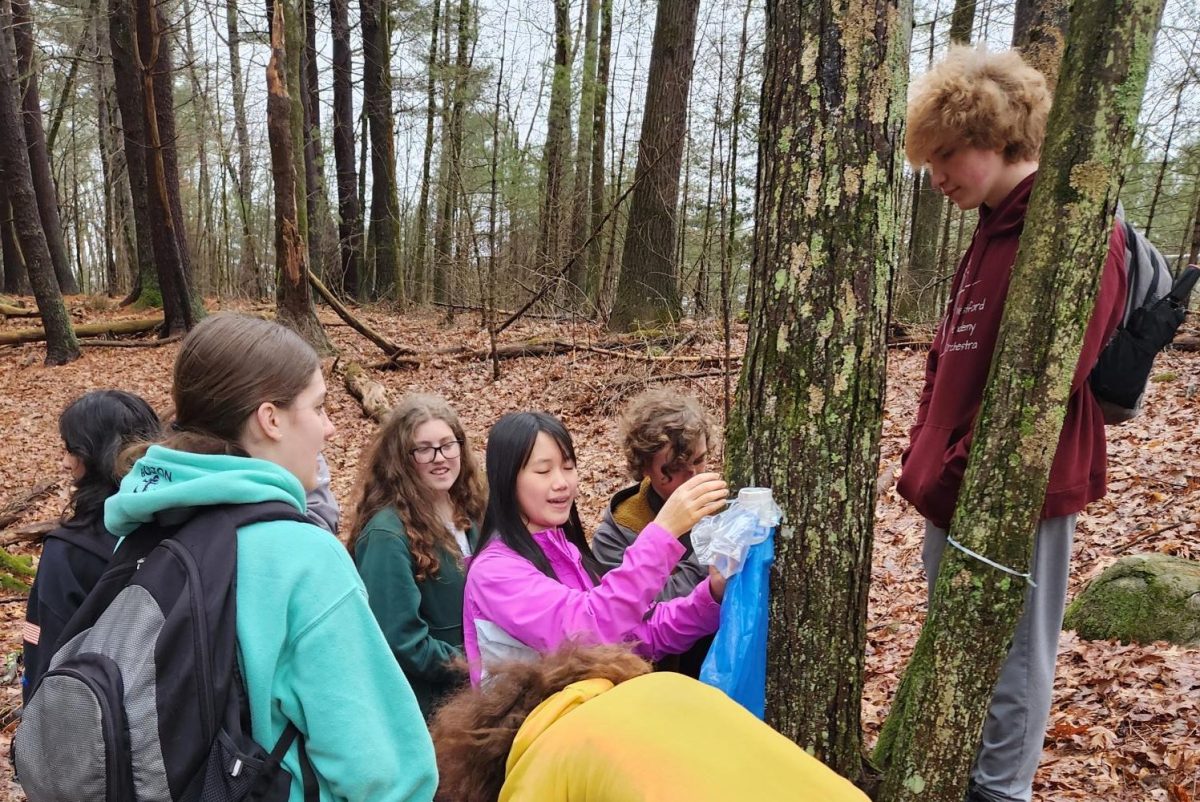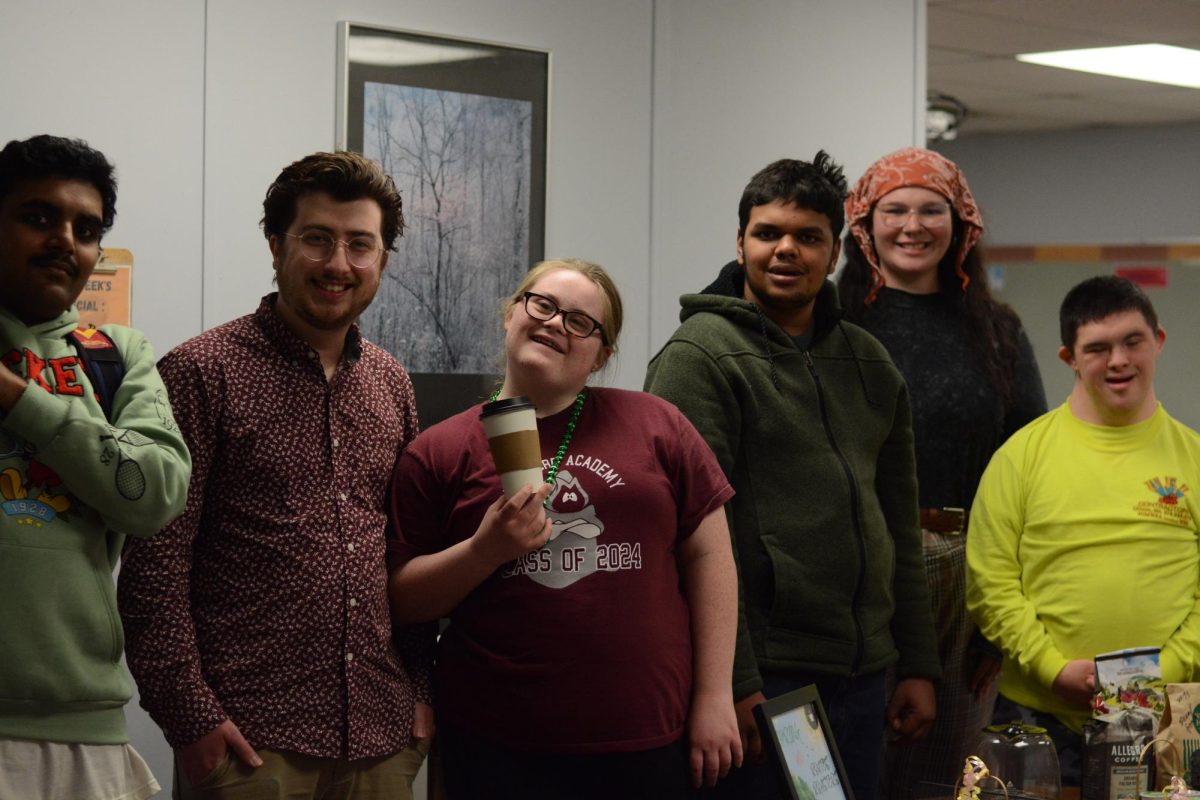Jugs upon jugs of maple syrup line the shelves of grocery stores waiting to be plucked off, purchased, and poured over pancakes. It is not often that the hard work necessary to harvest this sweet syrup crosses hungry diners’ minds. Many never experience the time-consuming process that sugarmakers go through just to produce a small amount of it.
Westford Academy’s Cirrus club, however, knows the process firsthand after completing their second annual tree tapping on Thursday, March 7 in the woods just outside WA. The idea was introduced to the club last year by senior Kai-Xing Yue. Yue, a student leader of the club, mentioned the idea to club advisor and educational support professional Lynn Jones, who encouraged her to research and gather materials for the activity.
“If somebody wants to do something particular, I just say go for it,” Jones said. “We’ll put it on our schedule. I like it to be [the students’] club.
Yue was inspired to bring the activity to Cirrus by a failed attempt at tree taping with her father.
“I’ve always wanted to do maple tapping since I was little and one time I did it with my dad when I was younger, but we didn’t actually do it properly,” Yue said. “We didn’t get any sap that year, so [last year, I wondered] ‘What if we try it now?’”
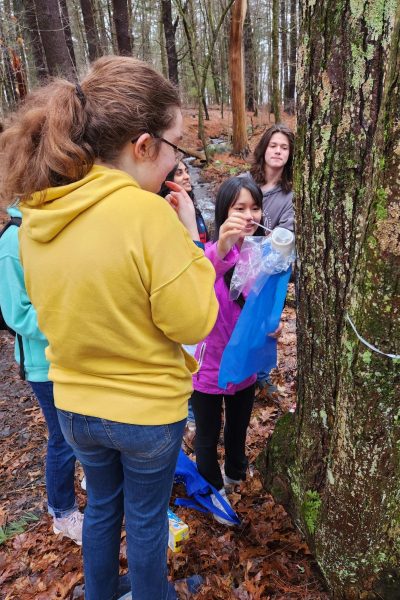
Starting the project required Yue to research and find supplies to not only harvest the sap, but also to find the optimal trees. Identifying the proper trees to extract the sap made up a large part of Yue’s research.
The sugar maple is the most commonly used tree to make maple syrup from, but the abundant groups of pines and oaks around WA made finding maple trees difficult. Another factor that added to the difficulty was the height of the branches on the trees. The few remaining leaves in late winter clung to the upper branches, making identification based on leaf shape nearly impossible.
However, Yue was able to work around this by using the grain of the bark and buds at the end of the tree branches to identify the sugar maples. Yue then bought the tapping kit and attempted to extract the sap from the trees on her own. After her initial test was successful, Yue brought her other kit for the rest of the club to take part in the sap harvesting.
Members of Cirrus ventured into the trail between WA and Robinson in early March to prepare the sugar maples, now marked by ribbons. Their first step was to drill holes in the trees and tap the spout into the hole to access the sap. They then attached a bag to the spout and left the setup there for a week.
On March 14, club members went back to their harvester and tasted the raw sap. To make the actual maple syrup, members placed the sap over a camp stove and cooked it down to make the sugary amber condiment. Although the process thus far had been pretty simple, the real difficulty of making maple syrup was the time-consuming collection and cooking.
Due to their time constraints, Cirrus was only able to collect a small amount of sap which yielded a smaller amount of unconcentrated maple syrup, but according to members, the experience itself was very rewarding and enjoyable to take part in.
“We didn’t really get to boil it all the way down the syrup because we didn’t have time but it was kind of fun for the members to try [the sap] and just have that experience,” Yue said.
According to the Massachusetts Maple Producers Association, the tapped holes of professional sugarmakers are typically left for 4-6 weeks and produce about 10 gallons of raw sap each. The sap is then boiled down from two hours to two days during which time the 10 gallons of sap is reduced to 1/40 of its original volume, or one quart, of maple syrup.
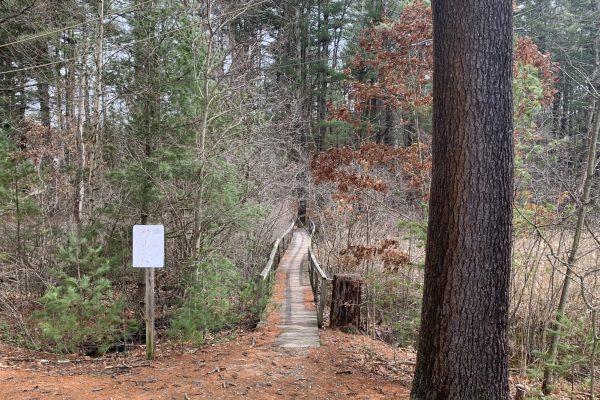
“I think it was successful because we saw how it’s done and now people know how to do it and if they wanted to, they could look in their own yards, find maple trees, get some gear, and do it themselves,” English teacher and Cirrus advisor Rebecca Shaw said.
In the future, the club hopes to include more activities during the time it takes to boil the sap, and extend the harvesting period to increase their yield of maple syrup.
“I think that we need to monitor the winters because this winter was warmer than normal […]. We actually ended up tapping a bit later in the season, so we didn’t get as much sap as we could have if we had tapped earlier,” Yue said. “I think that [in the future we] should just track the weather patterns a bit better.”
While Cirrus is mainly known for its intense hiking, camping trips, and climbs, tapping is just one of the lighter activities incorporated into the year where members can simply enjoy nature.
“I think everybody needs to get outside. I’m an outside person. Everybody’s away from their phones [during the club activities],” Jones said. “They’re enjoying nature. It’s relaxing. It’s good for the heart. It’s good for the body. It’s good for the soul.”
Along with tree tapping, Cirrus has organized trail clearings in partnership with the Westford Conservation Commission, made plans for ice fishing, and even went on a goat hike which, as its name infers, is a hike with baby goats.
“When my older sister did Cirrus, it was very regimented […]. Mrs. Jones has taken it in a different direction and now she likes to do whatever outdoor things we can,” Shaw said. “It doesn’t have to be quite so rigid […]. She’s brought in water, kayaking, paddleboarding, tree tapping, and other things like that.”
Standing at a 4,000 foot summit is an incredible feat, but at its core, Cirrus aims to strengthen student connections to nature and encourage them to find adventure and relaxation.
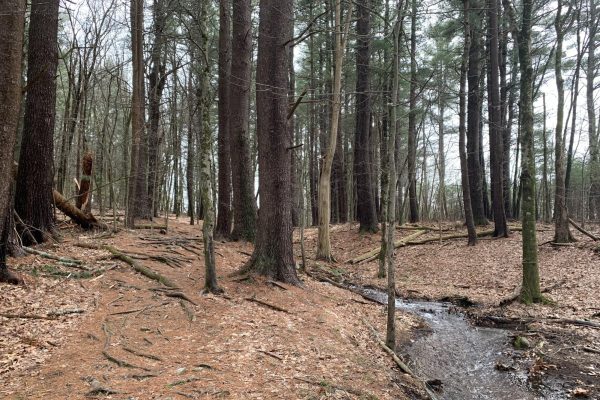
“I feel like those [activities] are fun, it’s easier to do things that are [more unique], and we welcome people anytime to join in and be active,” Shaw said. “Cirrus is really wonderful. I think more people need to spend more time outside. Everybody’s always in a better mood after spending a significant amount of time outside.”
According to Jones, the club aims to provide students at WA with structured time to focus on the world around them and reduce stress. With numerous studies detailing the benefits of spending time outdoors, high schoolers often need clubs like Cirrus which prioritize slowing life down and embracing a clear mind.
“Westford Academy is a very academic-oriented school so there’s not as much of an emphasis on getting outside and exploring nature,” Yue said. “So it’s a really good break from schoolwork and academics to just go outside and take a breath of fresh air.”

